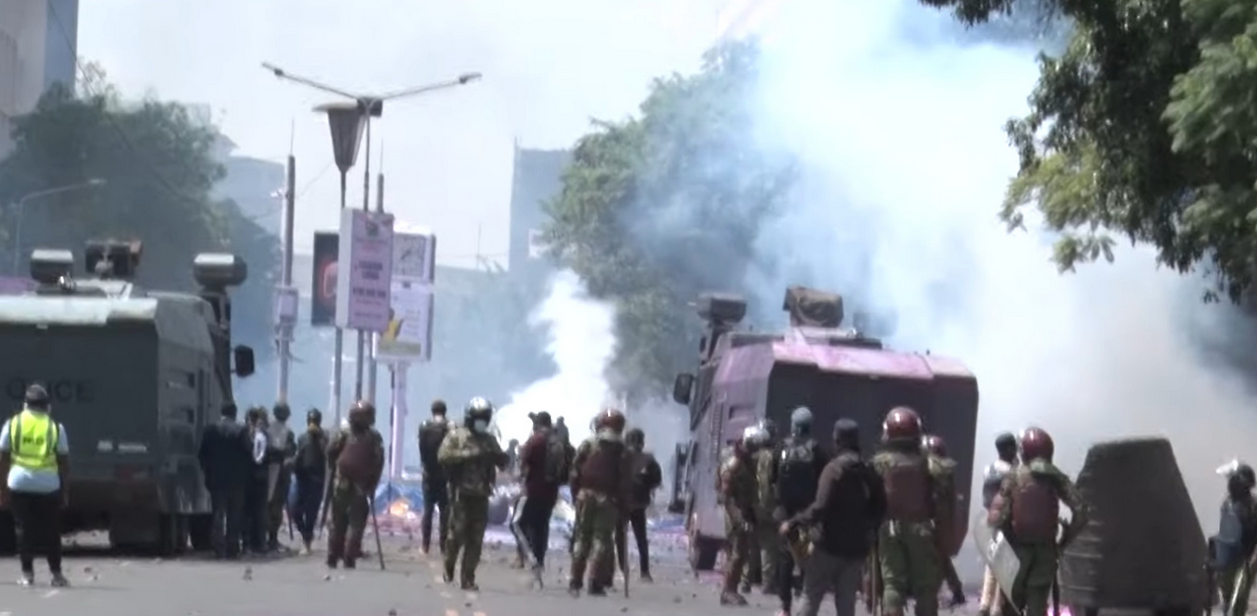Photos: Facebook\YouTube Screenshots\Facebook
Two events occurred in Kenya recently, and both could aptly be described as having double-edged sword effect: one, controversial, and the other, abominable.
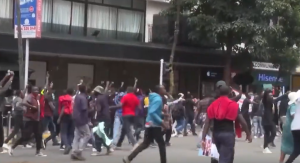
I’ll take the controversial one first.
On 24 June, this year, and barely a few days ago, Kenya’s President William Ruto deployed a contingent of Kenya’s police officers – about 400 of them – to Port-au-Prince, Haiti, to assist in combating the orgy of violence and spates of deaths unleashed by criminal gangs in that country. The deployment was marred in controversies, some of the country’s law makers and teeming human rights activists, decrying the president’s act, as “illegal,” as it grossly undermined the country’s constitution, which supports or approves deployment of military troops and not police officers.
Kenyan citizens are also suspicious of the relationship between their country and the US, many, seeing their country as a stooge, and others, wondering why the US, herself, remains obstinate and reluctant to send their own troops to that country despite the fact that Haiti is strategically located to the US.
But President Ruto, being such a snowflake, will not hear this. To him, his officers’ deployment is “a call to humanity,” and Kenyans should be content and proud of that.
Notwithstanding, however, hardly had the aircraft conveying the officers’ taxied down the runway of Jomo Kenyatta airport, when citizens who had been protesting against proposed tax legislation were gruesomely gunned down in the streets of Nairobi by the state’s security operatives. An abominable act which sent shock waves throughout the world, twenty-three citizens have so far been murdered, and the count goes on, as the protest continues unabated.
It started when a piece of legislation: the Finance Bill 2024 – now awaiting final ratification – was debated and passed in the country’s National Assembly. Its substance was essentially to introduce sales tax on some consumables: bread, cooking oil, and sugar, as well as a higher import tax of 3%, to be shouldered by the importer.
The tax hikes also affected manufactured goods like sanitary towels and diapers. The position of the president was that the legislation is necessary to offset or mitigate the country’s staggering debts which are currently over $10.8 billion.
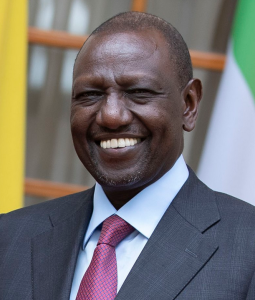
To the suffering Kenyans, President Ruto’s standpoint was like a red rag to a bull: a complete farrago of nonsense. They saw themselves as been scapegoated for the gross economic failure of the government. And thus, took to the streets to vent their anger and frustration.
Sensing the people’s dissatisfaction, the president sent the heavily-armed state’s security operatives to the streets – and like a brood of bloody hounds – they showed their ferocity, barking, whipping, and kicking. When that wasn’t enough, they went for the jugular, and shot indiscriminately into the crowd, murdering defenceless citizens in cold blood.
This, for certain, infuriated the demonstrators, who intensified their protests and in the process, torched a section of the state’s parliament’s building.
President Ruto has labelled the protests “an act of treason,” saying it was sponsored by “dangerous” people, who, he maintains, will be “severely dealt with.” But this is where Mr President goofed. In delicate issues like these, you do not take a bellicose standpoint, as it will end up not only contrary to reason, but counter-productive. More so, it isn’t advisable that you cut off your nose to spite your face. Wisdom is all that’s needed, and lack of it, will make the crisis spiral out of proportion and snowball into further chaos. Two wrongs, they say, do not make a right.
It is utter madness when a president hails his “call to humanity” in one instance, and in another, culls human beings through the barrel of the gun in his own country!
In any case, if there are those accused of breaking the law, they should be arraigned before the courts. President Ruto’s frantic search for “dangerous” people, which, for all intents and purposes, is a search for scapegoats, will end up in the state, clamping down on the rights of those he sees as his “political enemies,” not to mention other innocent citizens, whose rights would be violated.
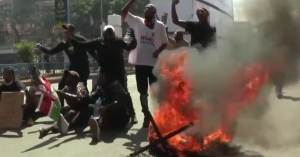
Again, the president must not be carried away by absolute power. He must know – and I think he knows – that Kenya is a signatory to the social contract she had with the citizens, to protect them and make them safe, as they, the Kenyan people, carry out their civic responsibilities. The implicit contract is not to maim, brutalize, eliminate, or send them to early graves.
Now to the rioters: While Article 37 of the Kenyan constitution guarantees your right to protest peacefully, wanton destruction of public properties, is an aberration.
In this vein, I condemn in the strictest of terms, the burning of part of the country’s parliament by the protesters. While we are given certain rights by the constitution, we should not abuse it. I say this as a lover of democracy, and had sounded similar warnings in 2021, when former President Trump’s lapdogs and cronies unleashed mayhem in the country’s Capitol Hill in a bloodcurdling manner unheard of in the country.
The highhanded manner the Kenyan government is handling this protest is not good, and I do not think the generality of the people who want this controversial law repealed are stupid, not least the so-called “Generation Z,” who make up to 60% of the demonstrators. They are young, intelligent, vibrant, able-bodied, but unfortunately, unemployed. They want to live as their counterparts in Western Europe, with job opportunities, and enjoy the fundamental human rights those Europeans enjoy.
Kenya, I must admit, is a lovely country, and it is not in anyone’s interest for it to become an apocalyptic landscape à la Gaza. It’s time to bury the hatchet. Throwing this contentious, divisive bill, into the trash can of history is a start.
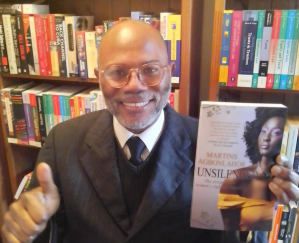
Martins Agbonlahor is a trained lawyer, journalist and author. He resides in Greater Manchester, The United Kingdom.
